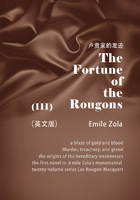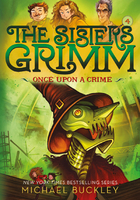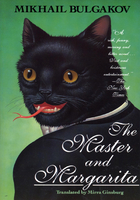PROGRESS LIKE THAT did not come again until I was over twenty. The fourth of the eight advances I have listed (to bring us quickly up to date, before we return to the broken shoelaces) came when I learned in college that L. brushed her tongue as well as her teeth. I had always imagined that toothbrushing was an activity confined strictly to the teeth, possibly the gums-but I had sometimes felt fleeting doubts that cleaning merely those parts of your mouth really attacked the source of bad breath, which I held to be the tongue. I developed the habit of pretending to cough, cupping my hand over my lips to sniff my breath; when the results disturbed me, I ate celery. But soon after I began going out with L., she, shrugging as if it were a matter of common knowledge, told me that she brushed her tongue every day, with her toothbrush. I shivered with revulsion at first, but was very impressed. It wasn't until three years had passed that I too began brushing my own tongue regularly. By the time my shoelaces broke, I was regularly brushing not only my tongue but the roof of my mouth-and I am not exaggerating when I say that it is a major change in my life.
The fifth major advance was my discovery of a way to apply deodorant in the morning while fully dressed, an incident I will describe in more detail later on, since it occurred on the very morning I became an adult. (In my case, adulthood itself was not an advance, although it was a useful waymark.)
My second apartment after college was the scene of the sixth advance. The bedroom had a wooden floor. Someone at work (Sue) told me that she was depressed, but that she would go home and clean her apartment, because that always cheered her up. I thought, how strange, how mannerist, how interestingly contrary to my own instincts and practices-deliberately cleaning your apartment to alter your mood! A few weeks later, I came home on a Sunday afternoon after staying over at L.'s apartment. I was extremely cheerful, and after a few minutes of reading, I stood up with the decision that I would clean my room. (I lived in a house with four other people, and thus had only one room that was truly mine.) I picked up articles of clothing and threw some papers out; then I asked myself what people like L., or the depressed woman at work, did next. They swept. In the kitchen closet I found a practically new broom (not one of the contemporary designs, with synthetic bristles uniformly cut at an angle, but one just like the kind I had grown up with, with blond smocked twigs bound to a blue handle by perfectly wrapped silver wire) that one of my housemates had bought. I got to work, reminded of a whole chain of subsidiary childhood discoveries, such as putting to use one of my father's shirt cardboards as a dustpan, and bracing the broom with an armpit in order to sweep the dust one-handed onto the shirt cardboard; and I found that the act of sweeping around the legs of the chair and the casters of the stereo cabinet and the corners of the bookcase, outlining them with my curving broom-strokes, as if I were putting each chair leg and caster and doorjamb in quotation marks, made me see these familiar features of my room with freshened receptivity. The phone rang just as I had swept up a final pile of dust, coins, and old earplugs-the moment when the room was at its very cleanest, because the pile that I had just assembled was still there as evidence. It was L. I told her that I was sweeping my room, and that even though I had already been feeling very cheerful, this sweeping was making me wildly cheerful! She said that she had just swept her apartment, too. She said that for her the best moment was sweeping the dust into the dustpan, and getting those ruler-edged gray lines of superfine residue, one after another, diminishing in thickness toward invisibility, but never completely disappearing, as you backed the dustpan up. The fact that we had independently decided to sweep our apartments on that Sunday afternoon after spending the weekend together, I took as a strong piece of evidence that we were right for each other. And from then on when I read things Samuel Johnson said about the deadliness of leisure and the uplifting effects of industry, I always nodded and thought of brooms.
Advance number seven, occurring not long after the Sunday sweep, was occasioned by my ordering a rubber stamp with my name and address on it from an office-supply store, so that I wouldn't have to write out my return address repeatedly when I paid bills. I had dropped some things off at the cleaner's that day, and the day before I had taken some chairs that L. had inherited from an aunt to be recaned by blind people in a distant suburb; I also had written my grandparents, and I had ordered a transcript of a MacNeil-Lehrer show in which an interviewee had said things that represented with particular clarity a way of thinking I disagreed with, and I had sent off to Penguin, just as they suggested in the back of all their paperbacks, for a "complete list of books available"; two days earlier I had dropped off my shoes to be reheeled-it's amazing that heels wear down before the laces snap-and paid several bills (which had made me think of the need for an address stamp). As I walked out of the office-supply store, I became aware of the power of all these individual, simultaneously pending transactions: all over the city, and at selected sites in other states, events were being set in motion on my behalf, services were being performed, simply because I had requested them and in some cases paid or agreed to pay later for them. (The letter to my grandparents didn't exactly fit, but contributed to the feeling even so.) Molten rubber was soon to be poured into backward metal letters that spelled my name and address; blind people were making clarinetists' finger motions over the holes of a half-caned chair, gauging distances and degrees of tautness; somewhere in the Midwest in rooms full of Tandem computers and Codex statistical multiplexers the magnetic record of certain debts in my name was being overwritten with a new magnetic record that corresponded to a figure diminished to the penny by the amount that I had written out in hasty felt-tip pen on my checks (I made the traditional long wavy mark after "and 00/100" on the dollar line, just as my parents had, and their parents had before them); the dry cleaner's would close soon, and in a sack somewhere in the darkened store, tied in a bundle to keep it separate from all other bundles, behind the faded posters in the window saying "For That Newly Tailored Look," my dirty clothing would rest for the night; I trusted them to take temporary possession of it, and they trusted me to return to their store and pay them for making it look like new. All of this and more I could get the world to do for me, and at the same time all of it was going on, I could walk down the street, unburdened with the niceties of the individual tasks, living my life! I felt like an efficient short-order cook, having eight or nine different egg orders working at once, dropping the toast, rolling the sausages, setting up the plates, flicking the switch that illuminated a waitress's number. It was the rubber stamp specifically that pushed the advance over the top, because, in bearing my name, the stamp summed up all of this action at a distance, and was itself a secondary, life-ordering act, which had taken time now, but which would save time later, every bill I paid.
The eighth advance, the last one that I can think of antedating the day of the broken laces, was a set of four reasons why it was a good thing for brain cells to die. One way or another, I had worried about the death of brain cells since I was about ten, convinced year after year that I was getting more stupid; and when I began to drink in a small way, and the news broke (while I was in college) that an ounce of distilled spirits kills one thousand neurons (I think that was the ratio), the concern intensified. One weekend I confessed to my mother on the phone that I had been worrying that over the past six months especially, my brain wattage had dimmed perceptibly. She had always been interested in materialist analogies for cognition, and she offered reassurance, as I knew she would. "It's true," she said, "that your individual brain cells are dying, but the ones that stay grow more and more connections, and those connections keep branching out over the years, and that's the progress you have to keep in mind. It's the number of links that are important, not the raw number of cells." This observation was exceedingly helpful. In the week or two following her news that connections continued to proliferate in the midst of neural carnage, I formed several related theories:
(a) We begin, perhaps, with a brain that is much too crowded with pure processing capacity, and therefore the death of the brain cells is part of a planned and necessary winnowing that precedes the move upward to higher levels of intelligence: the weak ones fizzle out, and the gaps they leave as they are reabsorbed stimulate the growth buds of dendrites, which now have more capacious playgrounds, and complex correlational structures come about as a result. (Or perhaps the dendrites' own heightened need for space to grow forces a mating struggle: they lock antlers with feebler outriggers in the search for the informationally rich connections, shortcutting through intermediate territories and causing them to wither and shut down like neighborhoods near a new thruway.) With fewer total cells, but more connections between each cell, the quality of your knowledge undergoes a transformation: you begin to have a feel for situations, people fall into types, your past memories link together, and your life begins to seem, as it hadn't when you were younger, an inevitable thing composed of a million small failures and successes dependently intergrown, as opposed to a bright beadlike row of unaffiliated moments. Mathematicians need all of those spare neurons, and their careers falter when the neurons do, but the rest of us should be thankful for their disappearance, for it makes room for experience. Depending on where on the range you began, you are shifted as your brain ages toward the richer, more mingled pole: mathematicians become philosophers, philosophers become historians, historians become biographers, biographers become college provosts, college provosts become political consultants, and political consultants run for office.
(b) Used with care, substances that harm neural tissue, such as alcohol, can aid intelligence: you corrode the chromium, giggly, crossword puzzle–solving parts of your mind with pain and poison, forcing the neurons to take responsibility for themselves and those around them, toughening themselves against the accelerated wear of these artificial solvents. After a night of poison, your brain wakes up in the morning saying, "No, I don't give a shit who introduced the sweet potato into North America." The damage that you have inflicted heals over, and the scarred places left behind have unusual surface areas, roughnesses enough to become the nodes around which wisdom weaves its fibrils.
(c) The neurons that do expire are the ones that made imitation possible. When you are capable of skillful imitation, the sweep of choices before you is too large; but when your brain loses its spare capacity, and along with it some agility, some joy in winging it, and the ambition to do things that don't suit it, then you finally have to settle down to do well the few things that your brain really can do well-the rest no longer seems pressing and distracting, because it is now permanently out of reach. The feeling that you are stupider than you were is what finally interests you in the really complex subjects of life: in change, in experience, in the ways other people have adjusted to disappointment and narrowed ability. You realize that you are no prodigy, your shoulders relax, and you begin to look around you, seeing local color unrivaled by blue glows of algebra and abstraction.
(d) Individual ideas are injured along with the links over which they travel. As they are dismembered and remembered, damaged, forgotten, and later refurbished, they become subtler, more hierarchical, tiered with half-obliterated particulars. When they molder or sustain damage, they regenerate more as a part of the self, and less as a part of an external system.
These were the eight main advances I had available to bring to bear on my life on the day I sat repairing the second shoelace to wear out in two days.















